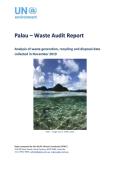
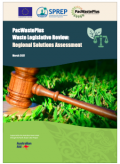
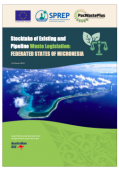
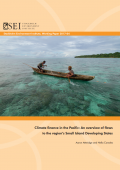
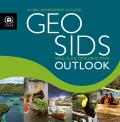
This report examines the diverse realities of Small Island Developing States (SIDS) through an integrated approach. While SIDS have bountiful supplies of renewable resources and unique cultural assets, they often face daunting challenges resulting from isolation and remoteness coupled with climate change, natural disasters, and out-migration. Furthermore, global financial shocks and increasing fuel and food prices are threatening core economic sectors such as tourism.
Built on combinations of realistic outlooks, this report develops an ensemble of four island-centric futures: the blue-green economy; technology leapfrogging; priority to island community and culture; and reconnecting with nature, to help individual states consider policy choices that best respond to their needs. This report shows that there is much that SIDS can do proactively to anticipate environmental problems and their economic consequences or even avoid them through innovative planning and action.
